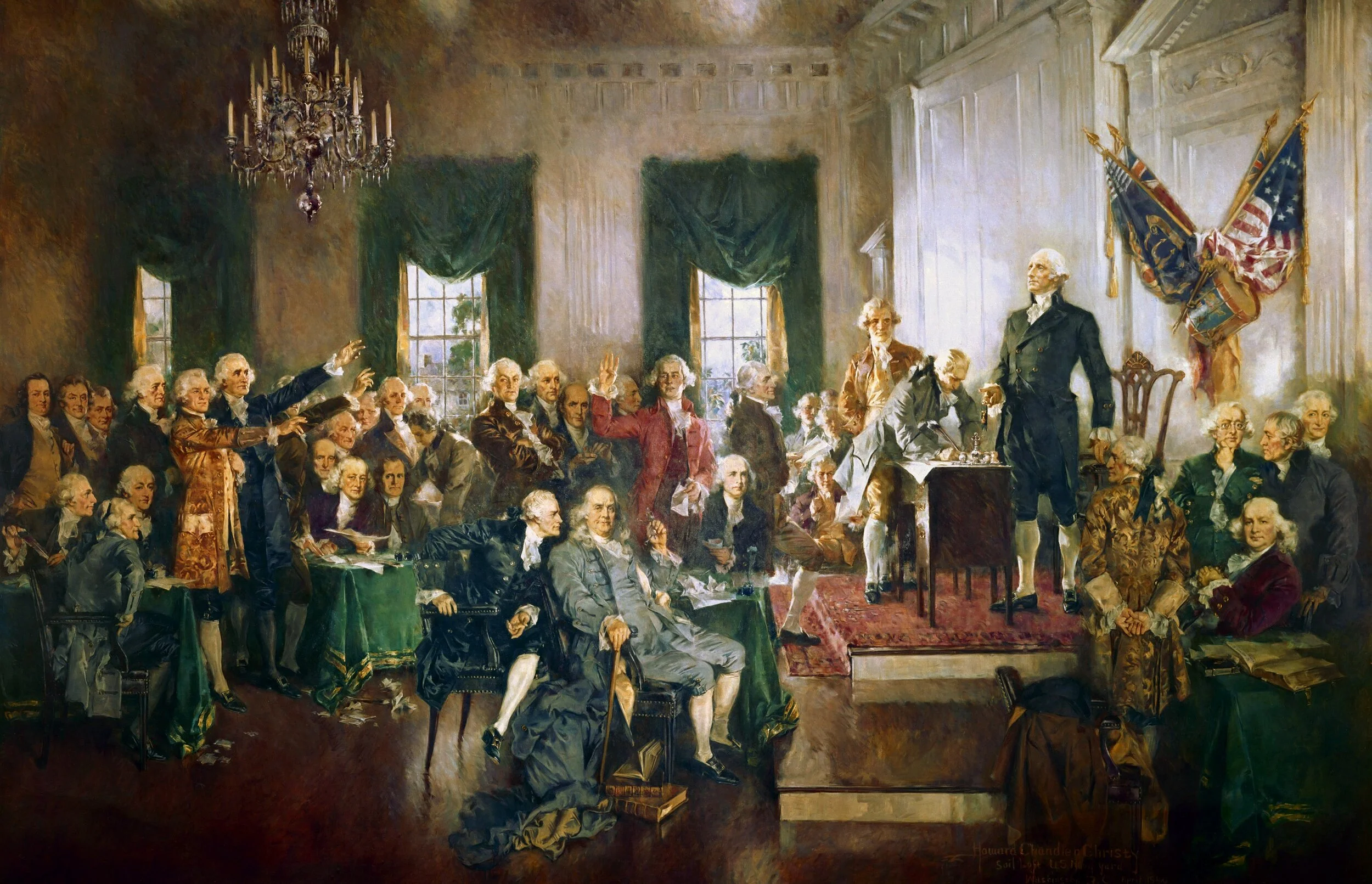Yes, we can! We absolutely can!
/Throughout this website you’ll find a commitment to peaceful change and to universal magnanimity. A good citizen doesn’t want violence. But you’ll also find an interest — even an eagerness — for fundamental and far-reaching change. The Congenial Iconoclast is even willing to consider replacing the Constitution.
You might ask, can decent people even talk about such stuff? Yes, we can. We absolutely can! Don’t take my word on this. Believe James Madison, who in April 1793 wrote:
If there be a principle that ought not to be questioned within the United States, it is that every nation has a right to abolish an old government and establish a new one. This principle is not only recorded in every public archive, written in every American heart, and sealed with the blood of a host of American martyrs; but is the only lawful tenure by which the United States hold their existence as a nation.
At the time Madison wrote this, the long period of crises that began in the 1760s, peaked with victory in 1781 and then the new Constitution in 1787, were all behind. George Washington was president. The Bill of Rights had been added to the Constitution. America was on the path to growth, stability and success.
And yet Madison still insisted that “every nation has a right to abolish an old government and establish a new one.” He doesn’t say nations have the rights to abolish a bad government and replace it with a good one. He doesn’t place any limitation on what the people are allowed to do with their own government. He doesn’t even hold America (or other nations) to the standard of 1776, when Thomas Jefferson wrote:
When in the Course of human events, it becomes necessary for one people to dissolve the political bands which have connected them with another, and to assume among the powers of the earth, the separate and equal station to which the Laws of Nature and of Nature's God entitle them, a decent respect to the opinions of mankind requires that they should declare the causes which impel them to the separation.
The Declaration of Independence starts with evidence that the American colonists had good reason to violate their loyalty to the English king. Even during the hot-headed and desperate days of revolution, Jefferson help up “a decent respect to the opinions of mankind.” Jefferson thought the Americans owed the world explanation why they wanted to change the order.
In the letter he wrote in 1793, Madison said there was no obligation to explain. By that time, the American government was an American concern. The nation (and every nation) had the right, he said, to abolish an old government.
We are the heirs to the political philosophies of the founders. To truly appreciate them, we ought to believe what they wrote and apply it to ourselves in our own time.
A 17th century Japanese philosopher named Basho said, “Don’t follow in the footsteps of the great men of old. Seek what they sought.”
We should be as fervent about good government as the founders were. We should be a revolutionary as they were when it comes to achieving progress in our times. We should be as unwavering about principles of fairness as the founders were.
We absolutely have the right to think about, and to openly discuss a fairer, happier and more efficient government and society. And we absolutely have the right to take peaceful, reasonable steps to achieve them.








